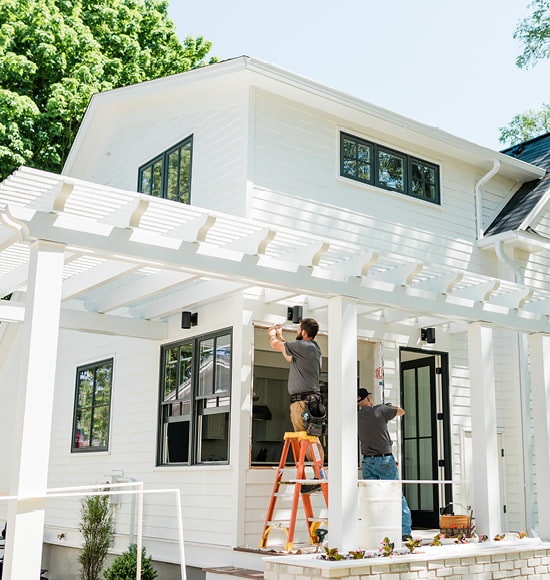Katy Window Replacement Professionals for Superior Service
Katy Window Replacement Professionals for Superior Service
Blog Article
Upgrade Your Home With Energy-Efficient Home Window Substitutes
In the realm of home renovation, the decision to upgrade to energy-efficient home window substitutes can substantially influence both the capability and visual appeals of a home (Jersey Village window replacement). As home owners look for ways to boost the efficiency and sustainability of their space, the choice of windows plays a pivotal role in accomplishing these goals. Beyond the surface area degree of mere appearances, energy-efficient home windows offer a plethora of benefits that surpass mere aesthetic allure. With a careful option process that takes into consideration different variables, from glass types to installation strategies, beginning on this home upgrade trip could confirm to be a transformative venture.
Advantages of Energy-Efficient Windows

The installment of energy-efficient home windows offers significant financial savings on energy costs while boosting ecological sustainability. Energy-efficient windows are designed to reduce heat loss and gain, minimizing the requirement for home heating and cooling systems to function overtime. By properly protecting the home, these home windows help preserve a comfortable indoor temperature level year-round, causing reduced energy consumption and reduced utility prices. Additionally, energy-efficient windows can assist control moisture levels within the home, reducing the danger of mold and mildew and mildew growth.
Past the economic advantages, energy-efficient windows contribute to ecological sustainability by reducing carbon emissions connected with power manufacturing. On the whole, spending in energy-efficient home windows not only boosts the convenience and effectiveness of a home yet additionally straightens with eco mindful practices.
Kinds Of Energy-Efficient Glass
Numerous advanced sorts of energy-efficient glass deal distinct residential properties that deal with different requirements and choices in improving the sustainability and performance of structures. Low-emissivity (Low-E) glass is a popular option created to reduce the amount of ultraviolet and infrared light that can pass via the glass, therefore minimizing warm transfer. This kind of glass aids keep a constant interior temperature, minimizing the requirement for heating or cooling down systems, and ultimately decreasing power expenses. Another innovative option is spectrally discerning glass, which enables noticeable light to pass through while obstructing certain kinds of infrared radiation. This aids in keeping a comfortable indoor environment while lessening warmth gain. Triple-pane glass, consisting of three layers of glass with protecting gas between them, supplies improved thermal insulation, making it highly energy-efficient. Additionally, self-cleaning glass with an unique finish that damages down and loosens up dust when revealed to sunshine can decrease upkeep needs and keep home windows looking clean. Each sort of energy-efficient glass supplies distinct benefits, allowing home owners to select one of the most suitable alternative based upon their particular demands and objectives.
Elements to Think About When Choosing
When contemplating energy-efficient home window replacements, it is essential to carefully assess particular elements that line up Read Full Article with your sustainability purposes and preferred energy cost savings. The U-factor steps how well the home window insulates, with reduced numbers suggesting far better insulation, while the SHGC shows the home window's capacity to obstruct heat from sunshine. By very carefully reviewing these aspects, you can choose energy-efficient windows that improve comfort, lower energy costs, and benefit the environment.
Installment and Maintenance Tips

Normal upkeep is key to protecting the effectiveness of your energy-efficient home windows. Check the home windows regularly for any type of indications of sealer, damage, or wear degeneration. Tidy the frameworks, tracks, and glass regularly using mild soap and water to remove dirt and gunk that can influence performance. Inspect the weather-stripping and seals for any kind of tears or spaces and replace them if needed to maintain the home windows' power performance.
Furthermore, oil moving parts such as joints and locks to guarantee smooth procedure. By following look at here now these installment and maintenance pointers, you can enhance the energy efficiency of your home and prolong the life expectancy of your energy-efficient windows.
Cost-Benefit Analysis of Updating

Energy-efficient windows are created to minimize warm transfer, decreasing the need for home heating and cooling down systems to burn the midnight oil. This can lead to significant financial savings on power bills, specifically in regions with severe temperatures. Furthermore, energy-efficient home windows can enhance the overall worth of your home, making it extra eye-catching to potential purchasers if you determine to market in the future.
When determining the cost-benefit analysis, element in the prospective savings on power costs, any readily available rewards or refunds, and the lifespan of the home windows. While the preliminary cost might be greater, the lasting savings and benefits of energy-efficient windows make them a wise investment for house owners looking to boost their property's energy efficiency and worth.

Conclusion
In verdict, updating to energy-efficient window substitutes provides various benefits such as minimized power consumption, raised convenience, and cost savings. By picking the proper kind of energy-efficient glass and taking into consideration variables like framework material and setup, house owners can optimize the performance of their windows.
When pondering energy-efficient home window substitutes, it is vital to thoroughly assess certain aspects that align with your sustainability purposes and desired energy financial savings. The U-factor measures how well the home window shields, with reduced numbers showing better insulation, while the SHGC shows the home window's capacity to obstruct heat from sunlight. By carefully assessing these factors, you can choose energy-efficient home windows that boost comfort, decrease energy prices, and benefit the environment.
While energy-efficient home windows might have a higher upfront expense compared to typical home windows, the long-term advantages commonly surpass the preliminary investment.In final thought, updating to energy-efficient window substitutes provides countless benefits such as decreased energy consumption, boosted comfort, and price financial savings.
Report this page